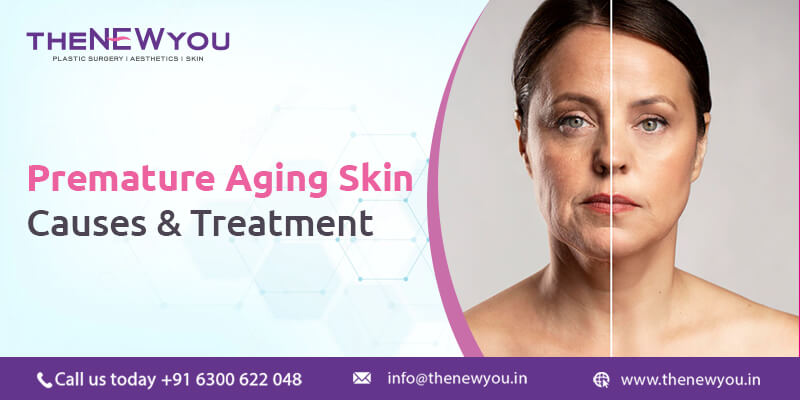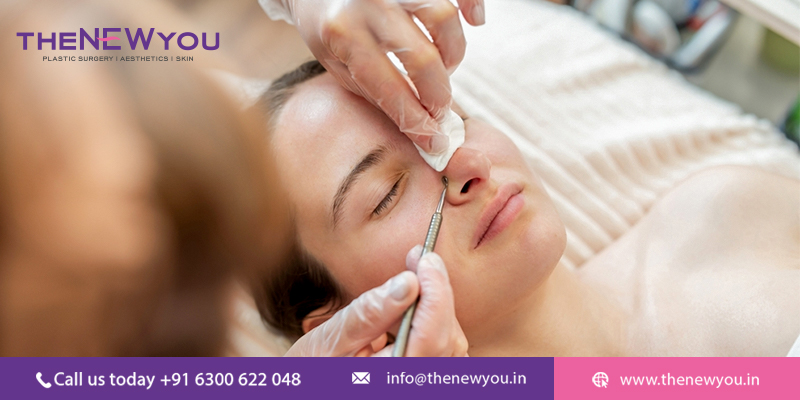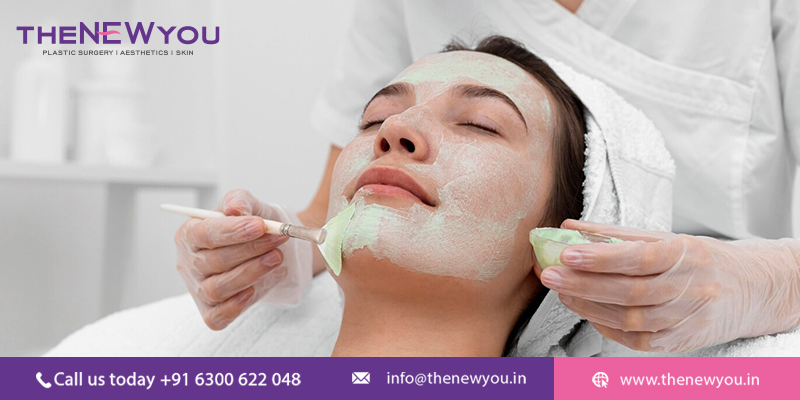Aging is a given. We all wish we could stay young-looking and healthy forever, but the truth is that your body and looks change as you age. Premature aging skin refers to when these changes happen more quickly for certain people than others.
Standard lifestyle variables and habits that can all be changed or rectified can contribute to premature aging. The most noticeable symptoms of premature aging include wrinkles, age spots, dryness, and loss of skin tone. Our faces naturally lose some of their youthful fullness as we age. We realize that our skin is getting drier and thinner. These modifications mainly depend on our genes. In medicine, this aging process is referred to as “intrinsic aging.”
What Is Premature Aging?
The timeline is the main distinction between normal aging and premature aging. Most people start to notice fine lines and wrinkles by their early 30s, but this can happen even younger for those experiencing accelerated aging. When aging symptoms appear earlier than expected, this is called premature aging. To use a more formal term, a person ages prematurely when their biological age exceeds their chronological age.
The process of the body exhibiting indications of aging earlier than anticipated or at a rate quicker than the usual aging process is referred to as premature aging, sometimes known as premature or accelerated aging. It is defined by the onset of age-related changes and symptoms in people who are generally associated with later life yet manifest in younger age groups.
Signs Of Premature Aging
Premature aging symptoms might differ from person to person but typically involve the following: Wrinkles and fine lines: The appearance of observable creases and lines on the face, neck, and other parts of the body is referred to as wrinkles and fine lines.
- Sagging Skin: Skin drooping or sagging, especially around the cheeks, jawline, and neck, due to a loss of skin elasticity.
- Age Spots and Pigmentation: Disparate melanin distribution and UV damage frequently result in dark skin patches.
- Dull and Dry Skin: Skin that Looks Dry and Dull: Skin that looks dry, harsh, and devoid of youthful luster and glow.
- Thinning Hair: Premature hair thinning, or substantial hair loss may be more evident than expected, given a person’s age.
- Brittle Nails: Nails that lose their strength are more prone to breaking and no longer appear healthy.
- Reduced Muscle Tone: Loss of muscle mass and stiffness, resulting in a less toned appearance and ill-defined features.
Infographic: Signs Of Premature Aging
Causes Of Premature Aging
Several internal and external variables can have an impact on premature aging. Premature aging has several primary factors, including:
1. UV Exposure: Long-term, uncovered exposure to ultraviolet (UV) rays from the sun or synthetic tanning beds significantly contributes to early aging. The collagen and elastin fibers in the skin can be harmed by UV radiation, which can cause wrinkles, sunspots, and sagging skin.
2. Use of tobacco products and smoking: These behaviors release damaging substances into the environment that has been shown to hasten aging. Smoking limits blood flow to the skin, lowers oxygen levels, and produces more dangerous free radicals, which hasten aging.
3. Poor Diet: A diet deficient in important vitamins, minerals, and antioxidants might hasten aging. Excessive consumption of processed foods, sweet beverages, and bad fats can cause oxidative stress and inflammation, both of which contribute to aging.
4. Dehydration: Lack of appropriate hydration can impact the skin’s health and flexibility, causing it to become dry and look older.
5. Stress: Long-term stress can cause the release of stress hormones like cortisol, which can speed up the aging process by causing collagen and elastin to break down and cause inflammation.
6. Sleep Deprivation: Regular sleep deprivation can affect the body’s natural repair and regeneration processes, affecting skin health and causing early indications of aging.
Infographic: Causes Of Premature Aging
Treatment For Premature Aging
Treatments using retinoids, vitamin C, and alpha hydroxy acids may be sufficient for treating early aging symptoms. Consider chemical peels, dermabrasion, micro-needling, ultrasound energy devices, radio frequency, or laser resurfacing for moderate to severe facial sun damage. Hyaluronic acid or botulinum toxin injections may be used to alleviate deeper facial wrinkles.
Some people could decide to have surgery, such as a facelift, brow lift, or eyelid cosmetic surgery. It’s up to you to decide whether you do any of these things and how much. To explore your goals, options, expenses, risks, and benefits, arrange a consultation with a surgeon if you’re thinking about it.
Final Words
Many of the factors that promote accelerated aging are under our control. Premature aging symptoms can appear at any stage of adulthood, and environmental or lifestyle factors typically bring them on. Rare syndromes can sometimes result in premature aging. Premature aging can be avoided or reversed by taking care of your skin in the sun, giving up smoking, eating a healthy diet, and exercising. Ask your doctor about possible therapies if accelerated aging continues or starts to worry you. Many people now have younger skin because of new procedures and less invasive treatments for wrinkle reduction, skin tightening, and complexion enhancement.












